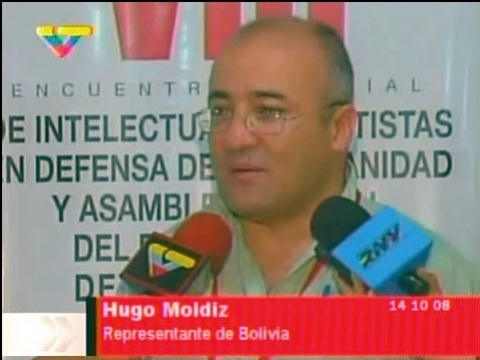environment

Election broadsheet of the Socialist Alliance, Australia
May 1, 2013 -- Links International Journal of Socialist Renewal -- Bring the mining industry, the big banks and the energy companies under public/community ownership and control, so that they can be run in a way that respects Aboriginal rights, the environment and social justice. The urgent need to address climate change alone demands that these industries be immediately taken out of the hands of the billionaires and their global corporations and operated as not-for-profit public services under the democratic control of the majority.
From Greece to Australia, the whole world has witnessed the moral bankruptcy of capitalism as it has destroyed the lives of billions of people through the wholesale privatisation of our collective wealth and socialisation of their losses.
We cannot afford to leave our future to the likes of Australian mining billionaires Gina Rinehart and Clive Palmer, and the faceless bankers. If we do so, we won’t have a future worth leaving to future generations.
‘There are no recipes for socialism’: interview with Hugo Moldiz, Bolivian Marxist

Hugo Moldiz interviewed by Coral Wynter and Jim McIlroy
Mauritius: Flash flood hits Lalit de Klas’s offices and archives

By Lindsay Collen
Declaration of the Social Movements Assembly of the World Social Forum, Tunisia 2013

By the Social Movements Assembly of the World Social Forum, Tunisia, 2013
March 29, 2013 -- We are gathered here to affirm the fundamental contribution of peoples of Maghreb-Mashrek (from North Africa to the Middle East), in the construction of human civilisation. We affirm that decolonisation for oppressed peoples remains for us, the social movements of the world, a challenge of the greatest importance.
Through the WSF process, the Social Movements Assembly is the place where we come together through our diversity, in order to forge common struggles and a collective agenda to fight against capitalism, patriarchy, racism and all forms of discrimination and oppression. We have built a common history of work which led to some progress, particularly in Latin America, where we have been able to intervene in neoliberal alliances and to create several alternatives for just development that truly honors nature.
Senior Chinese communist: `Industrial civilisation is unsustainable'

A group of volunteers wave green handkerchiefs as they ride their bicycles in Beijing on November
Reducing production: How should socialists relate to struggles against capitalist growth

By Don Fitz
March 19, 2013 -- Links International Journal of Socialist Renewal -- The question is not should we advocate reducing production within capitalist society but rather: How do we best relate to those struggles that are already occurring? Activists across the globe are challenging the uncontrollable dynamic of economic expansion which threatens the survival of humanity. It has never been more urgent to provide a vision of a new society that can pull these efforts together.
France: Parti de Gauche launches ecosocialism manifesto; Jean-Luc Mélenchon on ecosocialism
Above and below, five-part video of Parti de Gauche leader Jean-Luc Mélenchon's seminar on the "Ecosocialist Revolution" presented on February 10, 2013, in Tunisia.
By Mathieu Agostini and Corinne Morel Darleux, Parti de Gauche, France.
March 29, 2013 -- Ecosocialisme -- On December 1, 2012, the Parti de Gauche (PdG, Left Party), organised a roundtable in Paris to discuss the ecosocialist project. This gave the opportunity to debate a new ecosocialist manifesto (Premier manifeste 18 thèses pour l’écosocialisme) around 18 themes. [PdG is a key part of the Front de Gauche, or Left Front (FdG), which is led by the PdeG's Jean-Luc Melenchon.]
Anti-fracking movement goes global, climate-change mafia warns

More than 2000 people protest against coal seam gas in the Illawarra, NSW, Australia, October 2011.
By Farida Iqbal
February 10, 2013 -- Green Left Weekly -- The shale gas industry-commissioned white paper, The Global Anti-Fracking Movement: What it Wants, How it Operates and What’s Next, makes for some very interesting reading. It was produced late last year by Control Risks, an “independent, global risk consultancy specialising in helping organisations manage political, integrity and security risks in complex and hostile environments”.
The white paper focuses on shale gas, but it also discusses coal seam gas. Shale gas is what features in the film Gasland by Josh Fox, which details the destructive effects of “fracking” on communities in the US.
A global movement has emerged to combat the risks to water and air quality, health and farmland that shale gas mining poses. Australia has both shale and coal seam gas reserves.
Chris Williams: What must be done to stop climate change?

For a moment he lost himself in the old, familiar dream.
Venezuelan ecosocialist: Can the revolution be liberated from the oil economy?'
January 30, 2013 – Green Left TV – Part
